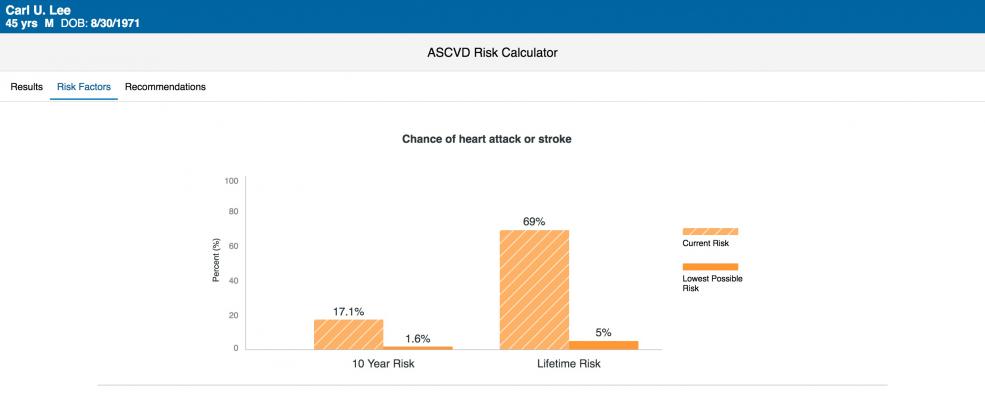
August 24, 2018 — Cerner recently collaborated with Duke Clinical Research Institute (DCRI) to develop an atherosclerotic cardiovascular disease (ASCVD) Risk Calculator app. The app was designed as a tool to increase communication between the patient and their doctor about ways to live a healthier life and risk factors for heart disease and stroke.
The app helps healthcare providers estimate 10-year and lifetime ASCVD risk for patients based on information like age, race, sex, blood pressure, cholesterol levels, smoking and diabetes status. If untreated, ASCVD can lead to heart attack and sudden cardiac arrest, as well as fatal and nonfatal stroke. To facilitate shared decision-making between the patient and their doctor to guide treatment decisions, the app was designed to factor in a person’s willingness to take action to improve their health, and the risks and benefits of potential therapies.
“Guidelines from the American College of Cardiology and American Heart Association now emphasize using the 10-year calculator to identify adults for statin therapy,” said Pierre Elias, M.D., cardiology fellow at Columbia University and former medical student at Duke University School of Medicine. “We wanted an app that would make it easier for clinicians to calculate risk at the point of care. Whether it’s the primary care clinic or a cardiologist’s office, I can’t tell you the number of times this can get missed when there are so many other problems to manage. Making it faster and easier to get news you can use leads to better patient care.”
Cerner and DCRI worked together to develop the software through the Cerner Open Developer Experience (code) that encourages innovators to build apps that advance the healthcare industry. Through Cerner’s open source code, doctors from DCRI provided clinical direction to create an app that could be embedded within Cerner’s electronic health record (EHR) for each patient. Cerner wrote, maintains and hosts the ASCVD Risk Calculator under an open source license.
“We developed the app to be able to pull important patient health data across multiple EHR suppliers at different venues of care in order to get a full picture of how to improve that patient’s health,” said Ann Marie Navar, M.D., Ph.D., assistant professor of medicine (cardiology) at Duke University School of Medicine and member of the Duke Clinical Research Institute who led the collaboration. “Cerner’s open platform encourages collaboration, which will help advance the way care is delivered regardless of the specific platform people are using.”
The ASCVD Risk Calculator app is available to providers in the SMART App Gallery and the Cerner Open Developer Experience (code) App Gallery.
For more information: www.code.cerner.com


 November 12, 2025
November 12, 2025 









